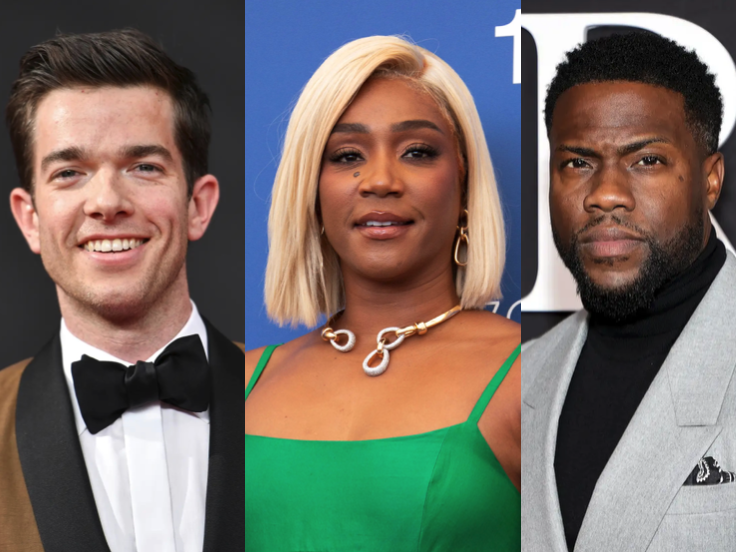
- Spotify's reduced its comedic catalogue, removing hundreds of comedians' work from the streaming service.
- Comedians like John Mulaney and Kevin Hart are pushing for increased royalties from audio-based streaming services.
- Spotify is excluding the comedy albums until it can reach an agreement with the organization representing the comedians.
Spotify has removed hundreds of comedians, including John Mulaney, Jim Gaffigan, Tiffany Haddish, Kevin Hart, and Mike Birbiglia, over royalty payment disputes after they tried to push for a change in the way streaming services pay them royalties.
The comics joined a coalition led by global rights administration company Spoken Giants looking to get paid royalties on copyrights for jokes they've written that are played on radio or digital audio services, like Spotify, SiriusXM, Pandora, and YouTube.
After stalled negotiations with Spoken Giants, Spotify sent an email to the global rights company right before Thanksgiving, saying it was taking down the comedians' content until an agreement could be reached.
Spoken Giants specializes in helping creators collect royalties for copyrights of spoken-word media like the comedians' jokes. The company has been in talks with other radio and audio streaming entities since the spring.
"Spotify does provide entertainers with exposure and access to large audiences," Spoken Giants CEO Jim King, a former executive at music rights company BMI, told the Wall Street Journal. "So having their work taken down is harmful to each individual creator."
More artists and creative talent are demanding increased royalties from streaming services, particularly songwriters. Streamers previously opted to appeal a federal ruling from the US Copyright Board raising the rates for royalties in 2018. Spotify was among other major music and audio content streamers, like Apple, Amazon, Pandora, and Google, who said they were fighting royalty boost.
According to the Wall Street Journal, comedians are paid as "performers" through their label or distributor, and by digital performance rights organization SoundExchange every time a digital service streams their content. However, comics are currently not paid as writers of their own work, like how songwriters are paid for the use of their music and lyrics.
With streaming and increased listenership of comedy albums, comedians can collect more money from their work across these platforms, King added.
Spotify said it paid "significant amounts of money for the content in question, and would love to continue to do so," the Wall Street Journal reported, noting that the comedians' labels and distributors are also a part of the conversation.
Spotify has not yet responded to Insider's request for comment on its decision to remove the comedians' work.